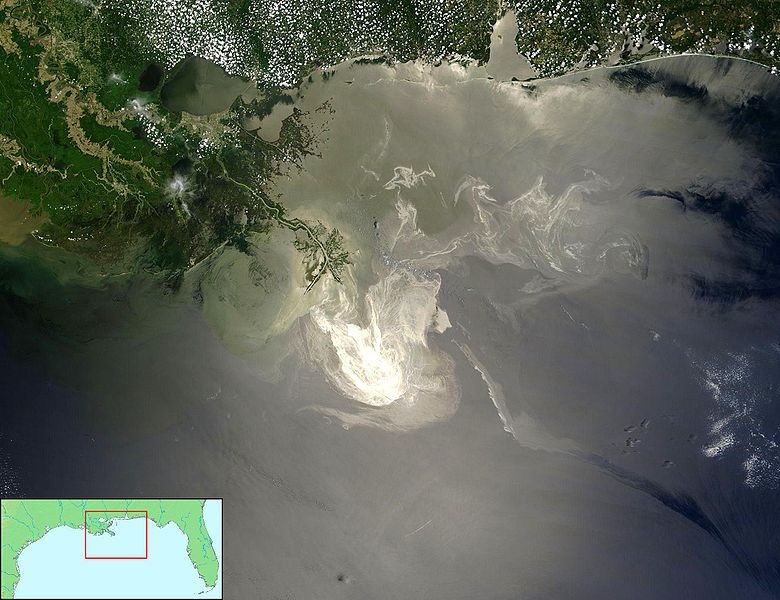Has the Gulf oil disaster fallen off America's radar?

For residents of the Gulf Coast, the BP oil spill is an ongoing disaster that's still causing serious health problems, environmental damage and economic hardship in one of the nation's key fisheries and tourism centers.
A recent report from one Alabama fishing community -- wracked first by Hurricane Katrina, then the recession, and now the oil spill -- told of families left destitute, girls prostituted by family members, and soaring levels of domestic violence.
Since the BP disaster, said one local school principal, "things have steadily gotten worse."
But listen to the national political conversation and it sounds as though America would like to forget that the BP oil disaster ever happened at all, never mind that it's still being suffered today. Take for example the Republican presidential primary debates and President Obama's recent State of the Union address.
Since last May, there have been 19 debates among the GOP candidates. According to the Washington Post transcripts, the total number of words spoken in those debates so far adds up to over 328,000 -- enough to fill over 800 pages in 11-point type.
But few of those words have addressed the realities of the ongoing disaster in the Gulf. Moderators have asked only two questions about the BP oil spill, and neither got a direct answer.
The first time the subject came up was during the Dec. 15 debate in Sioux City, Iowa, when moderator Bret Baier noted that Minnesota Congresswoman Michele Bachman, who has since left the race, was critical of the six-month moratorium on deepwater drilling that the Obama administration imposed following the BP spill. He asked what she would consider an acceptable period for drilling to cease in order to identify the problem that led to the spill.
Bachman did not answer the question, instead using it as a chance to criticize President Obama for not being "willing to have a true and thoughtful investigation to get to the bottom of" the BP disaster, without acknowledging the findings of the bipartisan BP oil commission. After devoting just 65 words to the Gulf, Bachman changed the subject to the Keystone XL pipeline.
The next time the BP disaster came up was during the Jan. 23 debate in Tampa. Questioning former U.S. Sen. Rick Santorum of Pennsylvania, Beth Reinhard of the National Journal noted that BP was "still airing apologetic appeals" on TV while there were proposals to expand offshore drilling. She continued, "The state's most optimistic estimates say more drilling would create 5,000 jobs, but an oil spill would threaten Florida's tourism industry, which employs nearly 1 million people. Is it worth the risk?"
Santorum skirted the question, saying that what threatens Florida tourism is a bad economy, which he blamed on a "huge spike in oil prices in the summer of 2008." He called for increased oil drilling. Total words devoted to talking about the BP disaster during the Republican debates so far: 307.
When it comes to keeping the ongoing Gulf crisis on the national agenda, the Democrat who currently occupies the White House isn't doing much better. In his third State of the Union address delivered on Jan. 24, President Obama mentioned the BP disaster only briefly in the section of his speech calling for "smart regulations," and he softened that mention with a joke:
We got rid of one rule from 40 years ago that could have forced some dairy farmers to spend $10,000 a year proving that they could contain a spill -- because milk was somehow classified as an oil. With a rule like that, I guess it was worth crying over spilled milk.
Now, I’m confident a farmer can contain a milk spill without a federal agency looking over his shoulder. Absolutely. But I will not back down from making sure an oil company can contain the kind of oil spill we saw in the Gulf two years ago.
It's not just the national rhetoric that's shortchanging the Gulf: Since the BP disaster began unfolding almost two years ago, not a single bill has been signed into law to protect and restore the Gulf of Mexico or the imperiled coastal communities that depend on it.
In the days leading up to today's primary in Florida, the Environmental Defense Action Fund launched a radio ad campaign in support of the bipartisan RESTORE Act, which would direct most of BP's Clean Water Act fines for the disaster to the Gulf region for ecosystem restoration and community recovery. Those fines are expected to be as high as $25 billion.
The RESTORE Act co-sponsors include nine out of 10 Gulf senators, including Florida Republican Marco Rubio and Democrat Bill Nelson. Nine of the state's newspapers have endorsed the bill, as has an array of organizations from the National Audubon Society to Oxfam America. A recent poll found that 83 percent of voters nationwide support the RESTORE Act, including 90 percent of Democrats, 76 percent of Republicans, and 78 percent of tea party supporters.
And that matters -- because in the end the challenge of making the Gulf Coast whole again can't be just a regional effort, as Gulf Restoration Network deputy director Aaron Viles has observed. "It is clear that if we’re going to protect and restore the Gulf," he wrote recently, "it will take a loud voice from the nation, not only from the Gulf."
To sign a petition calling on the Obama administration and Congress to take action for the Gulf, click here.
(Satellite photo of Gulf oil spill via NASA.)
Tags
Sue Sturgis
Sue is the former editorial director of Facing South and the Institute for Southern Studies.
